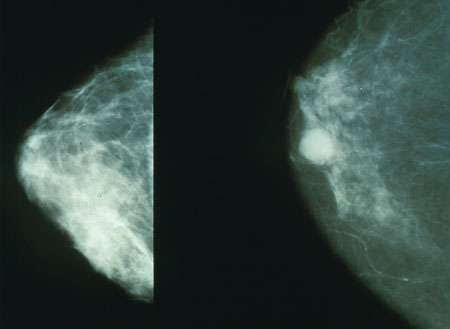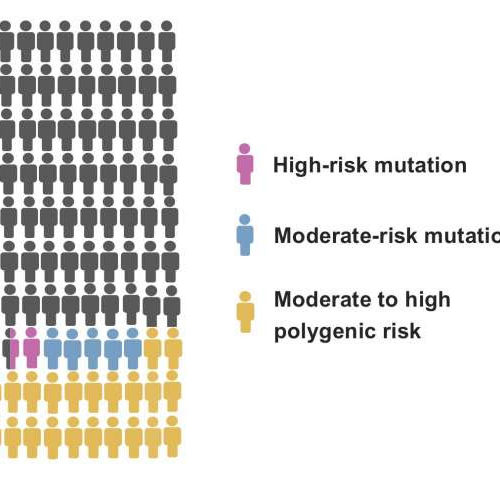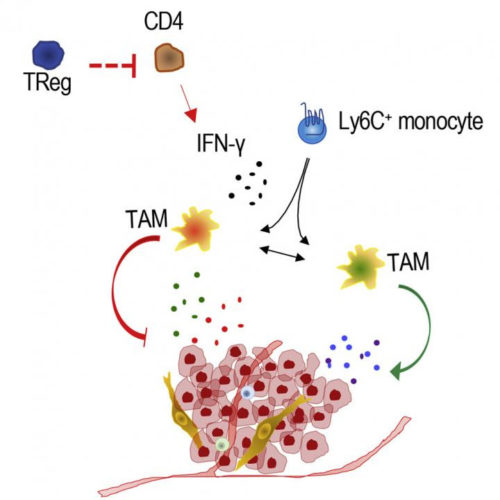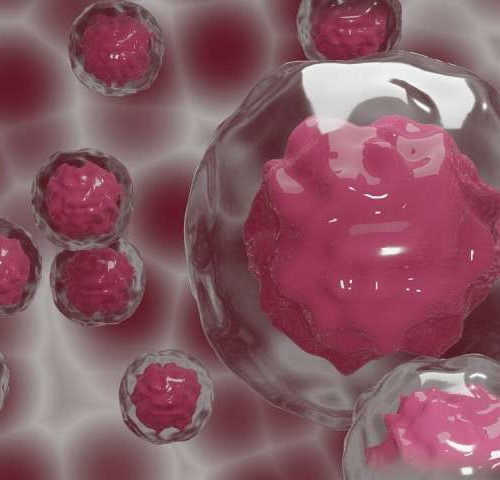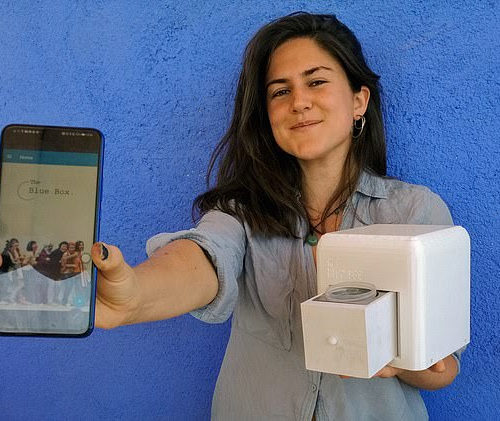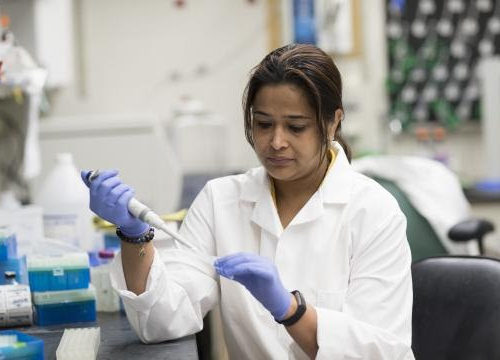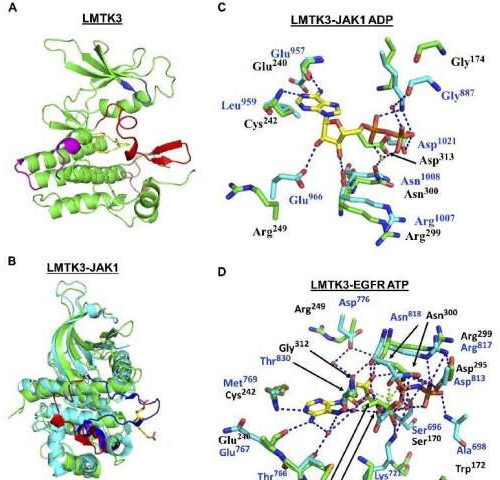by University of Melbourne Mammograms showing a normal breast (left) and a breast with cancer (right). Credit: Public Domain World-first techniques for predicting breast cancer risk from mammograms that were developed in Melbourne could revolutionise breast screening by allowing it to be tailored to women at minimal extra cost. Published in the International Journal of Cancer, the...
Tag: <span>Breast Cancer</span>
Novel genomic tools increase the accuracy of breast cancer risk assessment
by University of Helsinki Credit: University of Helsinki Findings from the FinnGen study encompassing 120,000 women indicate that inherited breast cancer risk should be assessed in an increasingly comprehensive manner. Currently, only individual gene mutations are taken into consideration in breast cancer therapy and prevention. The study demonstrates that more extensive genomic data can be used...
Immune cell that drives breast cancer could be effective target in novel immunotherapies
VIRGINIA COMMONWEALTH UNIVERSITY IMAGE: NEW RESEARCH FINDINGS FROM PAULA BOS, PH.D., IDENTIFIED A TYPE OF IMMUNE CELLS THAT ACTS AS A MAJOR DRIVER OF BREAST CANCER GROWTH BY PREVENTING THE ACCUMULATION OF A SPECIFIC PROTIEN THAT INDUCES ANTI-TUMOR RESPONSES. CREDIT: VCU MASSEY CANCER CENTER Breast cancer is the most common cancer in women worldwide, but...
The immunomodulatory activity of a drug would improve the efficacy of immunotherapy in breast cancer
by The Spanish National Cancer Research Centre Credit: CC0 Public Domain Despite the success of immunotherapy in the treatment of cancers such as lung or melanoma, it is still not effective in breast cancers for being ‘cold’, with low infiltration of immune cells. Tumors use strategies to evade immune surveillance by reducing the infiltration of cells that could...
Breast cancer screening device that gives results in just 40 minutes scoops £30,000 prize from James Dyson
A household breast cancer screening device that gives reliable results in minutes has won a £30,000 prize from billionaire inventor James Dyson. The Blue Box takes a urine sample and uses artificial intelligence to detect the early signs of breast cancer in just 40 minutes with 95 per cent accuracy. Inventor Judit Giro Benet, 23,...
Breast cancer discovery could help stop disease’s deadly spread
UNIVERSITY OF VIRGINIA HEALTH SYSTEM IMAGE: UVA’S SANCHITA BHATNAGAR, PHD, FOUND THAT THE BREAST CANCER ONCOGENE TRIM37 NOT ONLY CAUSES TRIPLE NEGATIVE BREAST CANCER TO SPREAD BUT ALSO MAKES IT RESISTANT TO CHEMOTHERAPY. University of Virginia Cancer Center researchers have identified a gene responsible for the spread of triple-negative breast cancer to other parts of the body...
Research points to new effective breast cancer treatment
by Diamond Light Source Crystal structure of LMTK3 – graphic adapted from Science Advances Paper see paper DOI: 10.1126/sciadv.abc3099 for full description. An international study led by scientists at the University of Sussex has provided strong evidence for an effective new target for breast cancer treatment. The five-year study, called “The structure-function relationship of oncogenic LMTK3,”...
Mammogram device under development to use light, ultrasound to better screen patients for breast cancer
The University at Buffalo has received a four-year, $1.4 million grant from the National Institutes of Health (NIH) to develop a new, portable breast-imaging system that has the potential to better identify breast cancer. Called a dual scan mammoscope (DSM), the device combines light and ultrasound technology to better screen patients with dense breast tissue...
Fighting breast cancer with nanotech, immunotherapy
A team of scientists led by a researcher at the Case Western Reserve University School of Medicine is making strides to fight deadly metastatic breast cancer by combining nanotechnology with immunotherapy. Efstathios “Stathis” Karathanasis, an associate professor of biomedical engineering, is directing the novel technique—sending nanoparticles into the body to wake up “cold” tumors so...
Honeybee venom rapidly destroys aggressive breast cancer cells
Reviewed by Emily Henderson, B.Sc. Using the venom from 312 honeybees and bumblebees in Perth Western Australia, Ireland and England, Dr Ciara Duffy from the Harry Perkins Institute of Medical Research and The University of Western Australia, tested the effect of the venom on the clinical subtypes of breast cancer, including triple-negative breast cancer, which...

